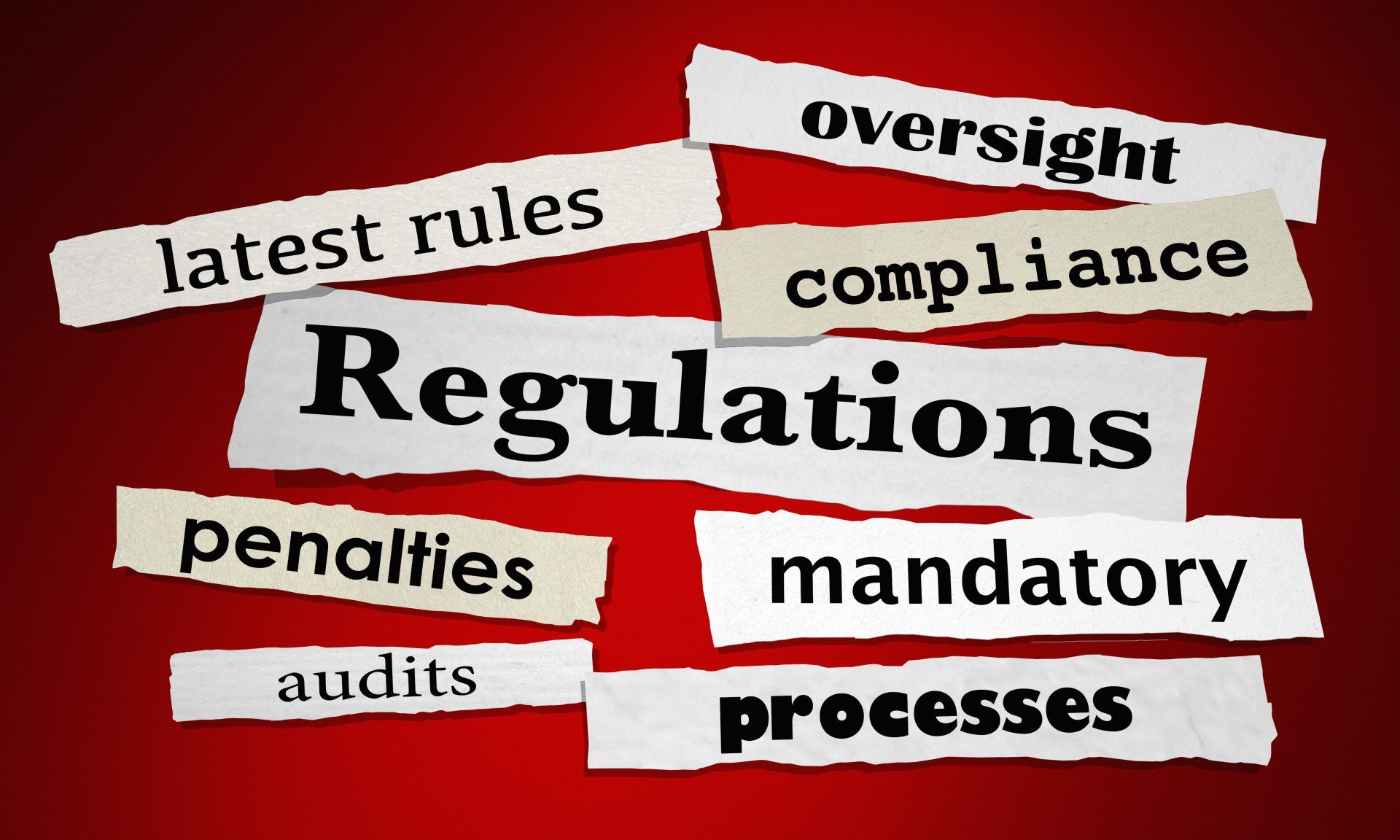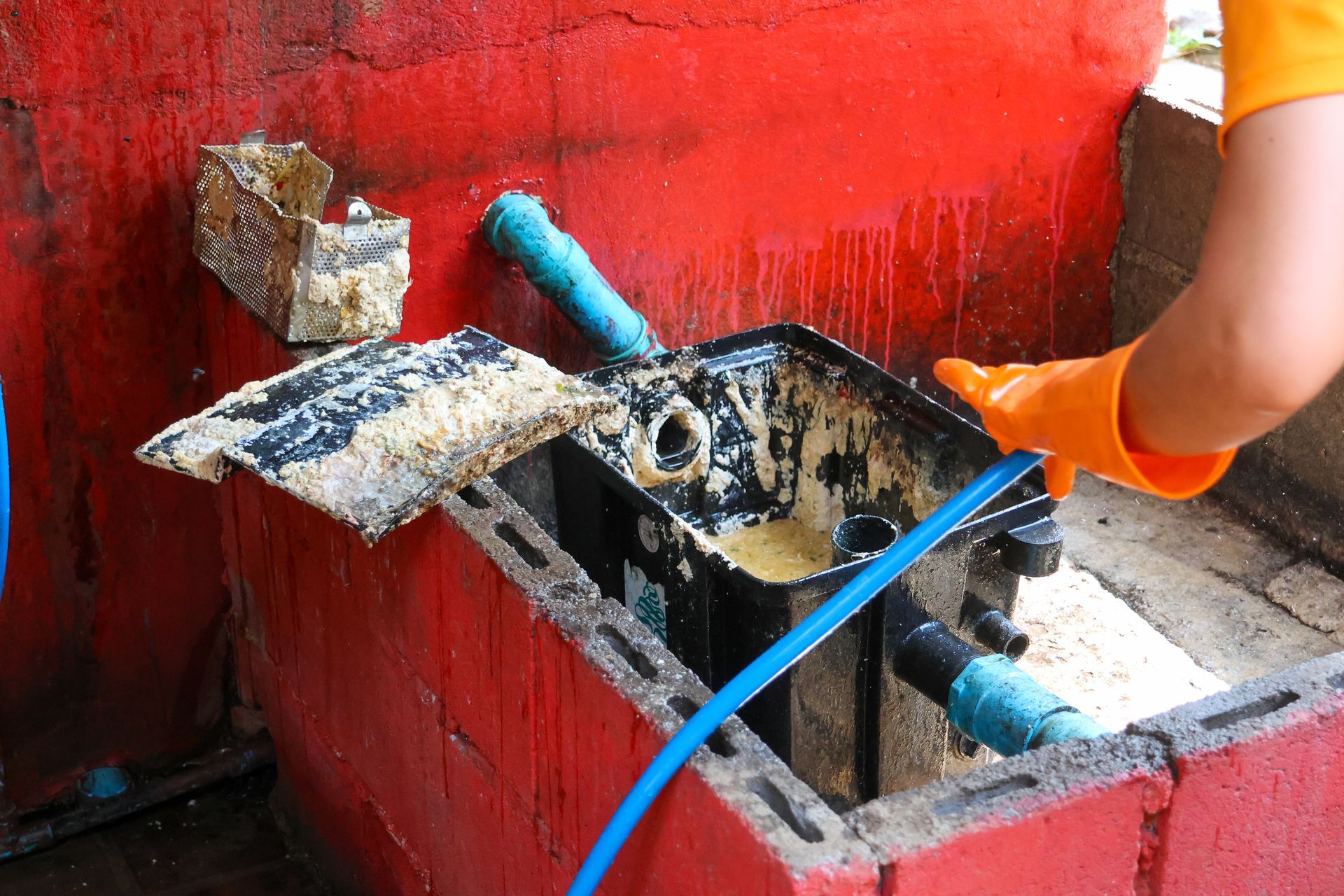Who Regulates Grease Traps in Georgia and Why Is It Important?

There are actually several layers of laws and regulations that apply to grease traps and FOG disposal. There are federal statutes, Georgia state laws and then county or city-wide laws. Restaurant owners are likely most familiar with the city or county regulations since it’s these more local regulators who perform the bulk of FOG disposal rule enforcement.
There Are Federal FOG Disposal Laws?
Yes – namely the Clean Water Act. If you look through some of the criminal prosecutions on the EPA’s website, you can see several cases where individuals and businesses have been charged with violating the pretreatment standards of the clean water act.
There’s even one case of a grease trap servicing and FOG transportation company that violated those federal statutes. The company was essentially pumping out the wastewater in one client’s grease trap and putting it into another client’s grease trap. The investigation seemed to find that it was rogue employees improperly disposing of FOG, but the company was charged with failing to monitor their employees or audit their waste disposal records. The waste removal company itself was given 36 months of probation and charged a $200,000 fine.
You can see a full list of the various federal cases that have been brought against Georgia companies and individuals for violating the Clean Water Act on the EPAs website. Most of those cases are related to companies or people dumping industrial chemicals illegally and aren’t directly related to FOG disposal.
Part of the reason you don’t see many FOG prosecutions under Clean Water Act statues is because of aggressive local enforcement in many Georgia counties.
DeKalb County FOG Management Program
You like won’t see a DeKalb County restauranteur make the prosecution list on the EPA’s website thanks to the Department of Watershed Management’s FOG Management program. Many Georgia counties rigorously enforce their detailed FOG requirements so Federal authorities don’t need to step in and intervene.
Some of the things FOG regulators in DeKalb County do include:
- Inspect grease traps and interceptors at food service establishments (FSEs)
- Calculate the appropriate sizing of existing and new grease traps and grease interceptors
- Inspect the installation of traps and interceptors for new and existing FSEs
- Check FOG manifests to confirm maintenance is being performed and properly documented by approved grease trap cleaning, servicing and wastewater removal companies
- Ensure companies like Southern Green Industries meet Georgia’s permitted waste transporter requirements
- Fulton County Grease Trap Rules
Fulton County has a similar set of rules and inspection requirements. If you own a food service business in Fulton County, you should probably familiarize yourself with section (e) for pretreatment inspections and section (h) for maintenance requirements.
Fulton County only performs one annual inspection but during that inspection they’ll want to see your grease trap servicing manifests to make sure your business is staying in compliance with their rules. As with most municipalities you must stick to the 25 percent rule (no more than 25 percent FOG in your grease trap).
They also have a number of specific schedules for grease trap cleaning based on the size, type and number of grease traps in your FSE.
Underground Systems
· One 50- to 1,500-gallon system: Once every three months
· Two to four 1,500-gallon grease traps: Once every six months
· One 3,000-gallon grease trap: Once every six months
Interior Grease Traps
· 40-pound grease traps: total pump out every three months minimum
· 70- to 100-pound grease traps: Every three months
· 25- to 35-gallon per minute grease traps: Perform daily maintenance on the solids container, system should be checked
weekly, every three months the units should undergo a total pump out to remove solids and ensure proper operation
Make sure you always get the manifest from your grease trap servicer and FOG waste transporter, since your inspector will want to see documentation that you’ve been sticking to the required cleaning and maintenance schedules.
Keep Up to Date With Your FOG Regulations
Here are some of the specific FOG ordinances for some of the most populous Georgia counties and cities:
· Savannah
You should look up your local municipal code if you aren’t familiar with your city or county’s FSE wastewater rules, grease trap requirements or FOG disposal compliance inspections. If you aren’t sure where to start or just don’t have the time to dig into hundreds of pages of statutes, ordinances and legalese, call our team at Southern Green Industries.
We’re committed to making FOG and wastewater disposal compliance easy for every food service business in the state of Georgia. We can schedule grease trap cleaning and servicing at the required interval for your particular grease traps and provide both physical and electronic manifests for your records. We can even forward all the relevant documentation on to your local regulators to ensure you never run afoul of your city or county’s rules.
Give us a call at (404) 419-6887 to get a free grease trap service quote. We also offer reliable, easy-to-use fryer oil recycling services.
Recent Blog Posts
Contact us Today for a FREE Quote
We are committed to making grease trap cleaning and fryer oil recycling as clean and easy as possible. If you’d like to learn more about our services or get a quote, give us a call at (404) 419-6887.



